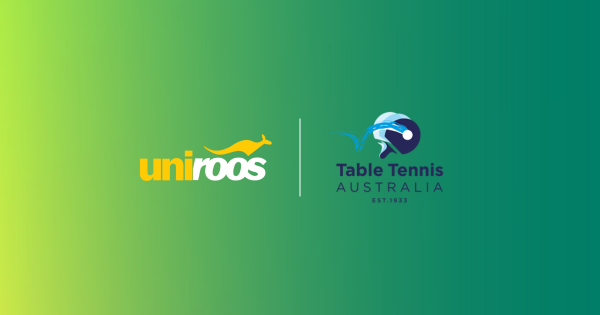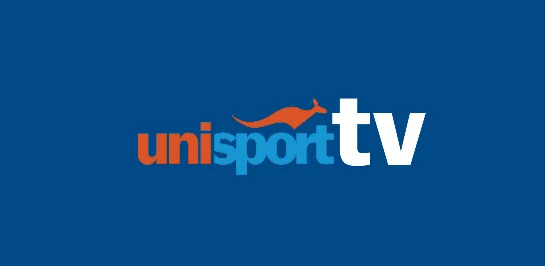
UniSport Nationals return to the Gold Coast in 2025. Find out more
Posted 28th November 2019
readThis article was written and provided by UniBank.
Have you ever wondered if your bank uses your money for good? Here’s how to find out if you’re with a responsible bank, and how to make the switch if you’re not.
You’ve swapped your disposable plastic water bottles for a refillable bottle and have ditched the dingy grey single-use grocery bags for more durable, reusable options.
But, have you thought about swapping your bank accounts?
Just as it’s becoming less socially acceptable to bring your groceries home in single use plastic bags, it’s no longer enough for banks to simply be a place where you keep your money. During Div 2, we asked athletes if what their bank does with their money is important to them. Over two-thirds, 70% to be exact, answered ‘yes’*. These results echo a recent report by audit and consulting group KMPG. They found 66% of investors under 30 make investment decisions based on a company’s ethical behaviour [source] .
So, how do you go about finding a bank that shares the same socially responsible and sustainable values as you?
Why does it matter how my bank uses my money?
When you open a bank account and deposit your weekly pay or this year’s birthday money from the grandparents, that money doesn’t just sit in your account until you withdraw it. Yes, you always have access to it when you need it and your balance doesn’t change. But a portion of the money you deposit is available in a pool of funds the bank uses to make loans to others. Your bank is using the money you deposit to fund all sorts of loans and other investments.
This system of deposits and loans is essential to our economy. Without money being deposited, money can’t be lent to fund new businesses, invest in new ideas or help someone purchase their first home. This system is also why it’s crucial you know exactly where your bank lends your money.
If you wouldn’t directly invest in a tobacco company, or an organisation that pollutes the oceans or exploits its workers, you wouldn’t want your bank to invest in them either.
Responsible banking or ethical banking – what’s the difference?
Whether your bank of choice uses the terms ‘responsible’, ‘sustainable’ or ‘ethical’ to describe their practices, doesn’t really matter. What matters is if they live up to the promise they make to their customers and community by choosing to adopt one of those terms.
Every financial institution has to turn a profit, otherwise they wouldn’t last very long. What matters is how they use that profit and any other funds available to them. If they’re using their funds in a manner that produces a positive social and environmental impact, then they’ll likely fall into this category. Banks can choose to avoid investing in companies that can harm people or the planet (negative screening) or they can choose to invest in companies that do good for people and the planet (positive screening).
Generally speaking in Australia, a bank can be considered ethical or responsible if they do not invest in any of the following:
But what about areas they do invest in? This will vary from bank to bank, but look for things such as:
You can also look into the bank’s human resources polices to find out if they’re diverse in their hiring practices and provide equal opportunities to women and minority groups.
Tip: Don’t limit this way of thinking to just your bank. You can apply these same principles to your super fund and your private health insurance, too.
How do I know a bank is responsible?
This is a big question, and the answer isn’t always straight forward. If a bank meets the socially responsible criteria mentioned above, then it will likely fall into the responsible category. It may also have at least one independent award or certification to back up its claims.
Two of the criteria that UniBank use are the Ethisphere Institute World’s Most Ethical (WME) Company award and the Responsible Investment Association Australasia (RIAA) Responsible Investment certification.
The WME award ‘honours companies that exemplify and advance corporate citizenship, transparency, and the standards of integrity.’ It takes into account five key categories and is based on their Ethics Quotient (EQ) framework. There are only five banks worldwide that made the list in 2019, and UniBank is one of them for the fourth year in a row.
The Responsible Investment Association Australasia (RIAA) Responsible Investment certification helps bank customers find investment options that align with their values. RIAA lists certified products on their Responsible Returns website, responsiblereturns.com.au
If you can’t find a mention of any credentials, policies or practices on your bank’s website, call and ask if they have any responsible, ethical or sustainable lending practices in place. If they don’t, ask if they will be moving in this direction in the near future. If you’re not happy with the response, it might be time to move to a bank that can give you a resounding ‘yes’.
How do I switch to a responsible bank?
Switching to a new bank isn’t as complicated as you might think . Your new bank may even be able to do most of the leg work for you.
The first step is to find a bank that aligns with your values and has the products and services you need. Once you’ve found your new bank and opened the transaction and savings accounts you want, your new bank can work with your old bank to move across any direct debits, such as your gym membership and phone bill. You’ll also need to transfer any money in your old savings accounts to your new bank.
When you’re confident all of your direct debit payments have been successfully set up, it’s time to close your old accounts. Remember, any payments you have set up through BPAY or a debit card linked to the old transaction account will need to be moved too. Chat with your new bank to see if they have any services to help you manage this and get everything set up correctly.
And that’s it! Now that you’ve moved away from your old bank you can rest easy knowing your money is living up to your values.
UniBank is a division of Teachers Mutual Bank Limited ABN 30 087 650 459 AFSL/Australian Credit Licence 238981.
Membership eligibility applies to join the bank. Membership is open to citizens or permanent residents of Australia who are current or retired employees, students and graduates of Australian Universities or family members of members of the Bank.
Any advice provided in this article is of a general nature only and should not be construed as providing advice on any of the topics discussed. Your needs and financial circumstances have not been taken into account.
Visit www.unibank.com.au/join/student-banking for more information on our student banking products, services and membership eligibility.
*The registration survey was conducted by UniSport on behalf of UniBank to get a better understanding of students’ financial needs and concerns. Full results are available upon request.

May 2, 2025

May 1, 2025

May 1, 2025

Don’t miss a beat, subscribe for exclusive updates, events, and insider news!
UniSport acknowledges and pays respect to all traditional custodians of the lands of which we run, jump and throw throughout Australia. We pay respect to elders both past, present and emerging.

The best university Sports action from Australia – stream it live now on UniSportTV.
Watch Live